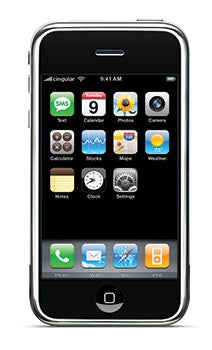 So the latest news is that the iPhone will feature YouTube. Not using Safari, Flash or J2ME, but as a non-portable iPhone app. That reminded me of the reason that Apple gave for not opening up the iPhone to third party developers:
So the latest news is that the iPhone will feature YouTube. Not using Safari, Flash or J2ME, but as a non-portable iPhone app. That reminded me of the reason that Apple gave for not opening up the iPhone to third party developers:"You don’t want your phone to be an open platform, You need it to work when you need it to work. Cingular doesn’t want to see their West Coast network go down because some application messed up."
Steve Jobs, Interview, January 2007
So why doesn't Apple include J2ME on the iPhone? Cingular already has millions of J2ME phones that have not brought down their network! Besides, consumers today do not download J2ME apps/games from the web - they buy them from the carrier decks. That translates into real revenue for the carriers. Why would any carrier say no to millions of dollars in revenue? Oh right, the reason why the iPhone does not include J2ME is:
"Java’s not worth building in. Nobody uses Java anymore. It’s this big heavyweight ball and chain."Really??? Let's look at the evidence, shall we?
Steve Jobs, Interview, January 2007
- All Tier-1 phone manufacturers support J2ME in a big way.
- Most major carriers support J2ME in a big way.
- RIM has completely embraced J2ME for their Blackberry.
- Almost all Windows Mobile phones today come with J2ME pre-installed!
- Palm, the last J2ME hold-out has finally licensed IBM's J9.
- Microsoft, Yahoo and Google have released their mobile applications using J2ME.
- J2ME being opensourced has ensured that every future Linux phone will ship with J2ME pre-installed.
- Globally, and even in the land of BREW (US), more J2ME enabled phones are sold today than any other platform.
I predict that Apple will go the BREW route: they will release an SDK, but you will need to pay big bucks to Apple to get your app/game certified so that it will even run on the iPhone. And consumers will only be able to buy these apps/games from iTunes. In the end, it's not about closing the iPhone for the consumer experience, or for the carriers - it's about proprietary vendor lock-in. When Microsoft does it, it's illegal, when Apple does it, it's cool??!!
** Updated to include iPhone image.